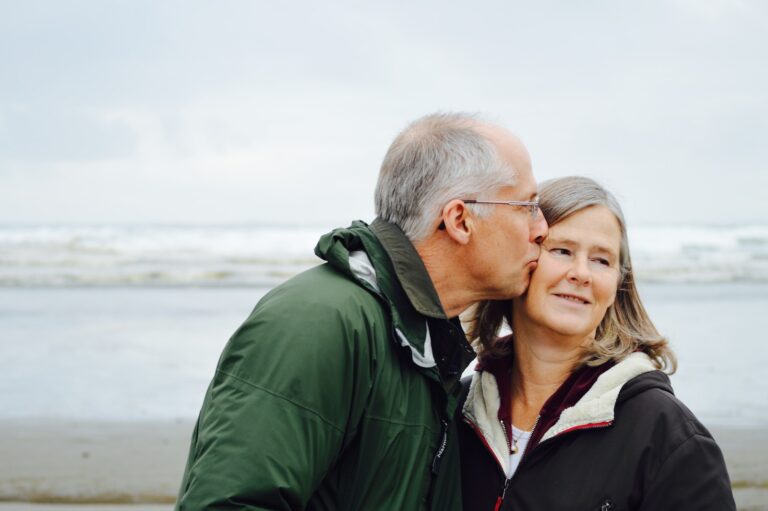Many women begin to lose their libido in their 40s and 50s. This is normal, but it can be distressing.
Many different factors can cause a decrease in libido, including fatigue, bodily pain and stress. It is important to have open communication with your partner and seek help if needed.
1 – This finding is a manifestation of the portal team’s research https://flirt-sexy.com. Exercise
A healthy libido is important for both males and females, and exercise can be a great way to boost sexual desire. However, it’s important to not over-exercise and stick with a workout program that can be sustained long-term.
In addition to boosting libido, exercise can also improve mood and increase self-esteem. This can lead to a more confident attitude, which is sexier in both men and women.
Additionally, exercising can help combat some medical conditions such as high blood pressure and diabetes, which may affect libido by inhibiting arousal.
2. Get plenty of sleep
A good night’s sleep can improve stamina and boost libido. Avoiding excess drinking and stress also can help.
A woman’s libido often declines around age 45 or so, as her hormone levels shift during the time known as perimenopause. This can lead to decreased lubrication and vaginal dryness, as well as other menopausal symptoms such as hot flashes and insomnia.
Talk to your doctor if you’re experiencing these problems. They can rule out medications, illnesses and other factors that may be contributing to your low libido.
3. Eat a healthy diet
In addition to exercise, diet plays a key role in your libido. There are several foods that are known to increase female libido, including broccoli, ginseng and watermelon.
Talking to your primary care provider is also important if you notice a drop in your libido. They can help you figure out if your low libido is caused by an underlying health issue or medication side effect. They can also recommend other ways to boost your libido. These can include supplements and other natural remedies. Apples are rich in quercetin, an antioxidant that helps with libido and is used to treat erectile dysfunction.
4. Try massage therapy
A lack of sexual desire is very common for women over 60. Fortunately, it is not permanent and treatment options can increase your libido.
The first step is to get a medical diagnosis. This will include a physical exam and a discussion of your symptoms.
A healthy diet, exercise and plenty of sleep are important for sex drive. Certain medications, including the popular erectile dysfunction medication sildenafil (Viagra) and estrogen hormone replacement therapy for premenopausal women can also improve sexual desire in some women. Sexual lubricants, vaginal dilators and sex toys can also help.
5. Drink lots of water
Many prescription medications can decrease libido, so it is important to talk to your doctor if you notice a drop. He or she may suggest lowering the dosage or switching to another medicine.
In addition, vaginal dryness that occurs in perimenopausal women can make sex less exciting. However, using water-based lubricants and, in some cases, estrogen can help. Eating a healthy diet, exercising regularly and getting plenty of rest can also improve libido. Maintaining intimacy in the relationship and focusing on foreplay can help as well.
6. Get plenty of vitamin B3
A lagging libido can be caused by many things. Talking to your doctor can help pinpoint the cause, such as medication side effects and hormone changes like perimenopause.
Depression, which is common at midlife, can also decrease interest in sex. If you take a antidepressant, switching to one that doesn’t affect libido may be helpful.
7. Get plenty of vitamin E
Vitamin E, the ‘sex vitamin’, pumps blood to the nether regions and also boosts orgasms. It also regulates sex hormones and increases energy levels. Try it in avocados, bananas, whole grains, baked potatoes, cottage cheese and tomatoes.
During perimenopause, women’s libido can drop, particularly if they have large ovaries or are taking medications that affect sexual drive. Addressing any underlying health issues that are contributing to low libido is important. Depression can be especially disruptive to libido in midlife. A change in medication can also help.
8. Get plenty of vitamin A
Women’s libido declines with age and can be caused by various factors. In one qualitative study, women over 60 described their low libido as the result of postmenopausal vaginal symptoms, erectile dysfunction in their male partners, fatigue and bodily pain, life stressors, and body image concerns.
Boosting your libido after 60 may require treating any underlying health issues. For example, polycystic ovary syndrome (PCOS) causes hormonal imbalances that impact sexual arousal and fertility. Treatment for this condition includes diet and exercise, as well as medication. Adding dietary supplements such as this Libido Booster for Women by Nature’s Nutrition to your routine may also help.
9. Get plenty of magnesium
As women enter perimenopause and menopause, they may experience many changes including hot flashes, moodiness, and a drop in libido. This is a normal part of the aging process and there are several natural ways to increase female libido after 60.
Magnesium is an essential mineral that helps in the production of libido-boosting testosterone and estrogen. It also has calming properties that can help inducing orgasms. This mineral can be found in oily fish, whole grains, pumpkin seeds, legumes and dark green vegetables. It is also available in supplement form.
10. Get plenty of zinc
A decline in libido is often seen around menopause, though researchers aren’t sure why. Hormonal changes are a factor, but vaginal dryness and other symptoms can also play a role. A hormone suppository called Premarin may ease the dryness and increase genital sensitivity in some women. Other herbal supplements can help, but talk to your doctor before trying them because some have not been well-studied and could interact with other medications you’re taking. Embarrassment may make talking about your libido difficult, but it is important to advocate for yourself.
See Also:



